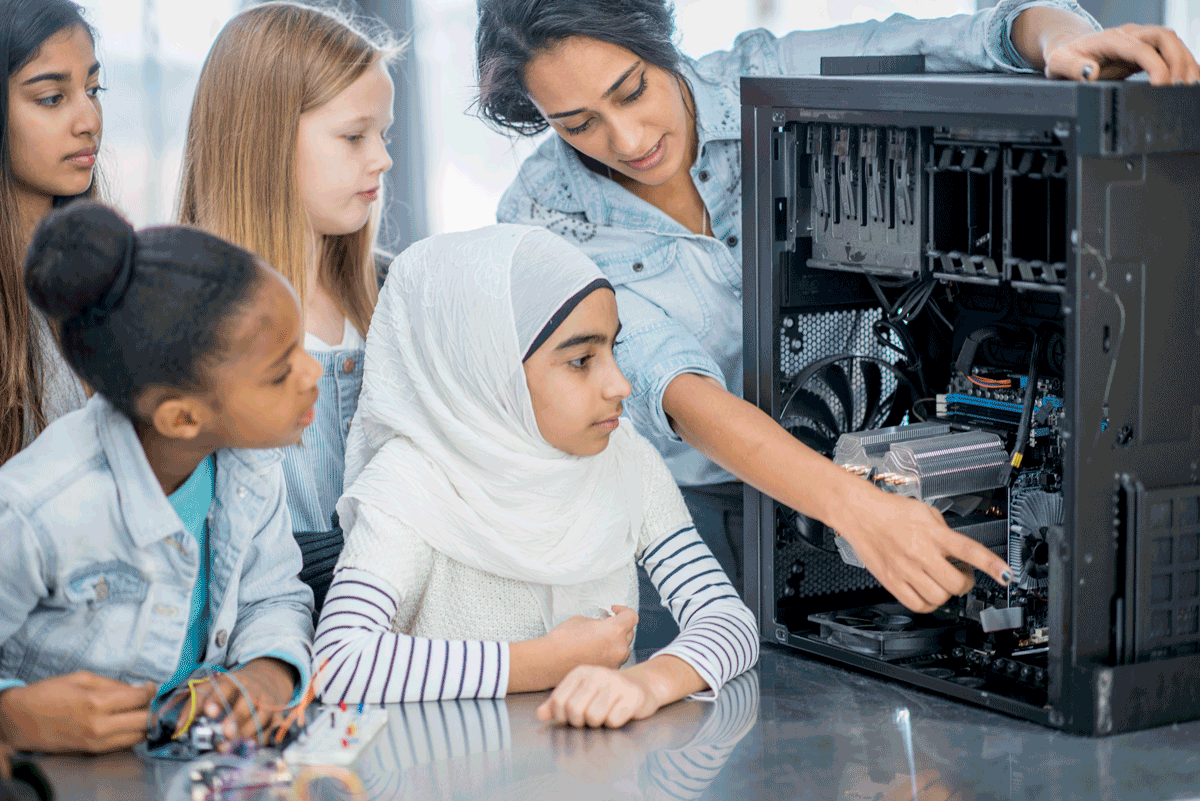The National Institute on Out-of-School Time (NIOST), directed by Georgia Hall, Ph.D., evaluated the impact of a STEM (science, technology, engineering, and math) education program for rural girls, and is now helping to expand the program’s connections to math and STEM identity activities, as well as to families. The program, GEMS (Girls Excelling in Math and Science), is an international network of hands-on, activity-based, out-of-school time clubs focused on increasing girls’ curiosity, interest, and persistence in STEM. It is designed especially, but not exclusively, for rural girls.
Methodology:
GEMS hosts 16 clubs in Venango County, Pennsylvania through afterschool, library, and summer programs, and serves more than 250 girls in grades 2-12. In 2020, NIOST completed a research study of two of these GEMS clubs, examining what types of science behaviors participants engaged in most frequently, how actively involved they were in the STEM activities, and their affect while doing the STEM activities.
In 2021, GEMS and NIOST received additional funding to expand connections to math and STEM identity activities for girls participating in GEMS clubs throughout the Venango and Clarion Counties area, with specific focus on Franklin, Oil City, and Knox. Building on the effective practices previously identified, this project will increase the scope and depth of math-focused and STEM identity-focused activities implemented in GEMS clubs, and develop a toolkit for parents so they can be more informed and prepared to best support their daughters’ participation in GEMS clubs.
Findings:
In its research study of the two GEMS clubs in Venango County, NIOST found that GEMS girls were actively involved in STEM projects in a hands-on way. In club activities, they engaged in a wide range of science behaviors, such as exploring, experimenting, observing, discussing, using tools, and asking questions. They enjoyed the process of creating, innovating, and solving challenges. They were frequently amazed and joyful about what they were discovering. At no time were they observed to be feeling frustrated, upset, or distressed when they encountered a challenge. They were activated by the challenges they confronted and eager to try to solve them and to connect with each other for help when needed. And they were persistent in their activities and faced challenges by working together.
These findings can be used to formulate strategies for keeping STEM learning strong for rural girls and others during their early experiences in informal STEM learning. For example, useful strategies include keeping girls engaged by ensuring activities are hands-on and challenging; encouraging them to work together; and helping them make connections between what they are doing and what professional scientists do in their jobs, so they start to view themselves as scientists-in-training.
Read more about the results of the study and its implications for effective practices.




